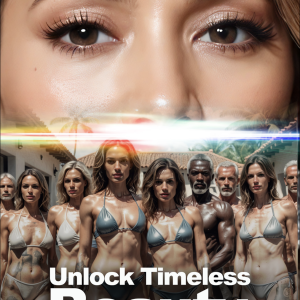The Algorithm Made You Single: How Dating Apps Reward Your Insecurity
Cold Open
It is 2:07 a.m. You have brushed your teeth, the light is off, the duvet is winning. Thumb hovering over Close, the screen blinks. Someone liked you. Your chest lifts, your stomach tightens, rationality loses altitude. That is not luck. That is design. The app knows your bedtime. It knows when your resolve fades. It knows that a push at the right second can turn a tired brain into a swiping machine.
Thesis
Dating apps monetize attention by amplifying uncertainty. When you hesitate, they win minutes. When you feel unsettled, they win hours. Clarity lowers your time on platform, so it gets throttled. The way out is not to delete the apps in a fit of rage, then reinstall two weekends later. The way out is to see the machine, then lead your behavior with intention that starves the insecurity loop and feeds real connection.
A Human Story, Because This Is About People, Not Pixels
Meet Maya, 32, sharp, solvent, funny in that clean, dry way that sneaks up on you. She had 169 matches in three weeks, which felt like possibility and emptiness at the same time. Nights turned into scrolls. Mornings turned into hangovers of hope. She noticed a pattern. The more vague she felt, the more the app kept her busy. The more specific she got, the quieter it became. When she asked for coffee Wednesday after 6, half of her matches vanished. It stung, then it clarified. Within a month of changing her profile and behavior, she went from ten shallow chats to two in-person dates, both with people who respected her time. The algorithm did not get nicer. She got sharper.
The Dopamine Loop, Explained
- Variable rewards. Slot machines run on unpredictable payouts. So do swipe decks. A rare match releases dopamine, which trains you to chase the next uncertain hit. This is classic intermittent reinforcement, documented in behavioral science since Skinner, and amplified by modern apps.
- Scarcity cues. Labels like Most Compatible or Super Like manufacture urgency. Your brain reads rarity as value. Your thumb obeys.
- Streaks and nudges. Notifications arrive when you are vulnerable, late at night or during lulls, because your self-control and prefrontal focus are lower. The result is more swipes, fewer dates, and more time in limbo.
Healthy insight, not scolding. Dopamine is not evil. It helps you seek and learn. The trap is the mismatch between your biology and a feed that never ends. Uncertainty elevates cortisol and attachment anxiety, which makes you pursue validation rather than compatibility. That tension feels like chemistry, and often, it is not.
Profile Audit, Signal Intent With Three Moves
Vague bios and ultra-filtered photos tell the system you are low intent. Low intent matches cluster together, which keeps everyone chatting and not meeting. Upgrade your signal.
- One bold hook. Name a stance. Examples, I do not do talking stages, I meet if we vibe. or I prefer a date to a pen pal. Confidence reads as clarity.
- One human detail. A specific, sensory anchor that makes you real. Examples, Saturday cinnamon rolls, terrible latte art champion. or I train for 5Ks, then reward myself with greasy tacos.
- One clear desire. Name what you want, without apology. Examples, Looking for a monogamous partner, curious, affectionate, optimistic. or Dating with intent, chemistry plus kindness.
Photo hygiene that respects reality. Use current, unfiltered images in natural light. One close face, one full body, one doing life. Over-curation often backfires because it invites fantasy, not recognition.
Message Psychology, Replace Ambiguity With Specificity
Stop mirroring the app’s ambiguity. Lead with clear, playful direction.
- Open with a micro-invite. Tie it to their profile. Examples, Your cinnamon roll stance is brave. Taste test at Milo’s this week, Wed after 6 or Sun morning. or Your dog’s ears are elite. Walk and coffee near the park, Sat 10 or 4.
- Make time-bound plans. Two options, both soon. The brain prefers easy choices.
- Add light stakes. Keep it human. Examples, Loser buys the second round. or If the latte art is tragic, we bail after 30.
- Use consent language. Be direct, be respectful. Example, If a short call helps, I am game tonight between 7 and 8.
Power Pivot, Boundaries That Create Gravity
Boundaries are not walls, they are magnets for people who value you.
- Set reply windows. Decide when you answer messages, twice a day, not all day. Put it in your bio if you are brave, I check messages around lunch and after 7.
- Turn off read receipts. Stop inviting anxiety. Silence is not rejection, it is a schedule.
- Prune weekly. Unmatch stale threads every Sunday. Reward movement, release drift.
- Guard your mornings. Do not open apps before breakfast. Protect your attention when your brain sets the tone for the day.
Anti-Ghosting Playbook, Save Time, Keep Warmth
You cannot control ghosting. You can reduce the space it has to thrive.
- Pre-close the plan. Before you leave the chat, agree on a time and place, plus a light confirmation plan. Example, Great, Thursday 6 at Milo’s. I will confirm by noon that day.
- Confirm once. Send a single confirmation. Example, Still good for 6 at Milo’s. Looking forward. If there is no reply by 3, assume it is off.
- Exit with grace. If they vanish, send a final line that protects your dignity and keeps the door open if life got messy. Examples, Looks like timing is off. No worries. I am going to release the hold, wish you well. or I am looking for straightforward energy, going to unmatch to keep my app small. Take care.
Offline Advantage, Why IRL Energy Beats The Feed
In person, your nervous systems sync in ways a chat cannot. Breath, cadence, warmth, and eye contact create trust faster than wit on a screen. A mediocre texter with calm presence will outshine a clever chatter who arrives late and distracted.
- Choose micro-challenges. Short activities that create shared focus, coffee then a short walk, a bookstore browse with one rule, pick a book for the other in five minutes.
- Prioritize warmth over banter. Smile, face them fully, listen with your shoulders. Humor lands better when safety is established.
- Keep it brief and bright. First dates that last 60 to 90 minutes leave energy for a second.
The 48-Hour Detox, Reset Your System Without Drama
Not a delete spree. A reset.
- Silence notifications for two days. You open the app, the app does not open you.
- Cap swipes at 20 per day. Choice overload numbs attraction, it does not deepen it.
- Prime your mood before swiping. Ten slow breaths, a glass of water, a song that lifts you. Swipe from a regulated state, not a lonely one.
- Journal outcomes, not impressions. Note what leads to dates, not who sent the cutest gif.
Red Flags Decoded, When to Unmatch, When to Call It Out
- Breadcrumbing. Minimal, periodic pings that never progress. Two nudges that fail to produce a plan is enough. Unmatch or send, I am looking to meet, not just chat. If the timing works, propose a day.
- Orbiting. They watch your stories, they never engage. This is background noise. Mute and move.
- Delayed availability. If every plan gets pushed, pattern counts more than apology. Say, My schedule is tight, I only hold plans that are firm. If they step up, great. If not, release.
- Sexual escalation that ignores consent. Clear boundary, I prefer to meet before we go there. If it continues, unmatch.
- Profile mismatch. Photos or details that seem off. Ask once, Hey, is that photo recent, or report and exit.
Metrics That Matter, Redefine Success
The app wants you to measure matches. You should measure movement.
- Fewer swipes per date. Your ratio should improve as your clarity rises.
- Time to meet. Aim for 5 to 10 messages before a plan, or a short call, then a date within a week.
- Clear yes or no signals. Less maybe, more movement. If ambiguity climbs, return to your boundaries and your profile clarity.
How This Article Differs From The Usual Dating Advice
If your last reads focused on first message templates, this goes deeper into behavior design and boundaries, not just scripts. If you studied attachment styles and intimacy pacing, useful and important, this piece zooms out to interrogate the system that profits from your anxious brain. If you read about sexual chemistry and early arousal cues, this conversation moves upstream, it targets the incentives that delay the real encounters where chemistry can be tested without filters.
Why This Matters For Health
- Stress and sleep. Late night nudges elevate cortisol and erode sleep quality. Sleep loss impairs emotion regulation, which makes you chase validation the next day.
- Attention and mood. Intermittent rewards keep your attention fragmented, and fragmented attention correlates with lower mood and more rumination.
- Autonomy and desire. Strong boundaries enhance autonomy, which strengthens desire and satisfaction in relationships. Your body is calmer when your choices feel self-directed.
A Short Field Guide You Can Use Today
- Update your bio with one hook, one human detail, one clear desire.
- Set a reply window, choose two times per day for messages.
- Send one micro-invite today, include two time options.
- Confirm once, then move on.
- Plan one in-person date that is 60 to 90 minutes, coffee and a walk is enough.
- Do a 48-hour detox this weekend, journal outcomes on Sunday.
Closing Beat
You are not unlovable. You are being gamified. Step out of the trance, step into intention. What one boundary or one clear invite will you try tonight to tell the algorithm you are not for sale.
References
- Berridge, K. C., and Robinson, T. E. 2016. Liking, wanting, and the incentive-sensitization theory of addiction. American Psychologist.
- Schultz, W., Dayan, P., and Montague, P. R. 1997. A neural substrate of prediction and reward. Science.
- Finkel, E. J., Eastwick, P. W., Karney, B. R., Reis, H. T., and Sprecher, S. 2012. Online dating, a critical analysis from the perspective of psychological science. Psychological Science in the Public Interest.
- Whitchurch, E. R., Wilson, T. D., and Gilbert, D. T. 2011. He loves me, he loves me not, uncertainty can increase romantic attraction. Psychological Science.
- Iyengar, S. S., and Lepper, M. R. 2000. When choice is demotivating, can one desire too much of a good thing. Journal of Personality and Social Psychology.
- Deci, E. L., and Ryan, R. M. 2000. The ‘what’ and ‘why’ of goal pursuits, human needs and the self-determination of behavior. Psychological Inquiry.
- Alter, A. 2017. Irresistible, The Rise of Addictive Technology and the Business of Keeping Us Hooked. Penguin Press.
- Eyal, N. 2014. Hooked, How to Build Habit-Forming Products. Portfolio.
- Strubel, J., and Petrie, T. A. 2017. Love me Tinder, body image and psychosocial functioning in Tinder users. Body Image.
- LeFebvre, L. E. 2017. Ghosting as a relationship dissolution strategy in the technological age. Iowa Journal of Communication.
- Hobbs, M., Owen, S., and Gerber, L. 2017. Liquid love, dating apps, and the illusion of choice. Communication Research and Practice.
- American Psychological Association. 2021. Stress in America, One year later, a new wave of pandemic health concerns. Relevant sections on technology and stress.


